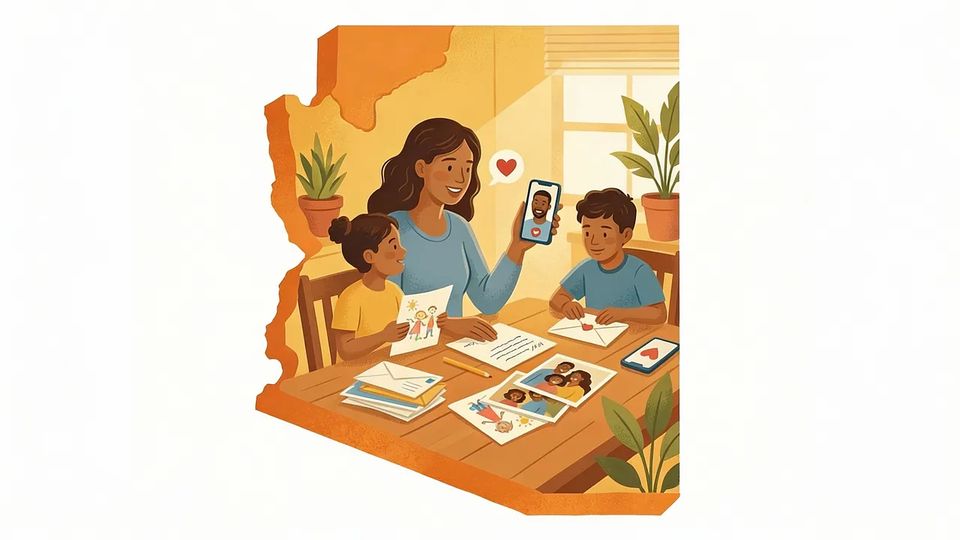
Arizona
Staying connected with someone in Arizona starts with one key step: confirm where they're housed. Is it a state prison or county jail? Which unit? Once you have that, mail, money, calls, and visitation become much easier to navigate. The address, vendor, and rules can change from place to place.
Facility Info
Confirm the exact facility name and unit before you mail anything or show up for a visit. Arizona facilities often have different addresses for different...
Read guideMail & Photos
For ADCRR state prisons, personal letters, greeting cards, photos, and drawings go to a Digital Processing Center. Legal mail is handled separately and...
Read guideSending Money
Money rules depend on whether your loved one is in an ADCRR state complex or a county jail. ADCRR does not accept checks, money orders, or cashier's checks...
Read guidePhone & Messaging
Arizona facilities use different vendors for calls, messages, and tablets, so your first step is matching the vendor to the specific jail or prison. Yuma...
Read guideVisitation
For ADCRR visitation, adult visitors applying for in-person, phone, or video visits must pay a one-time, non-refundable $25 background check fee. If you...
Read guidePrivacy and vendor security: what families should watch for
Treat your jail and prison communication accounts like financial accounts. ConnectNetwork/ViaPath disclosed that in August 2020, unknown attackers exposed...
Read guideFind an Inmate
Search for a loved one and send messages and photos in minutes.

Common Questions
Q
How should I address a letter or photo to an ADCRR inmate?
Address personal letters, greeting cards, photos, and drawings to ADCRR’s Digital Processing Center, using your loved one’s full first and last name and ADCRR number, plus the prison complex and assigned unit. Legal mail is handled differently: ADCRR states legal mail is addressed to the inmate at their assigned unit.
Q
Where do I send packages or publications for an ADCRR inmate?
ADCRR’s guidance lists a separate address for packages and publications in Phoenix, and it includes an effective date of January 7, 2026. Use your loved one’s full name, ADCRR number, and their prison complex and assigned unit as shown in that guidance.
Q
Can I drop off clothing or personal items for someone in jail?
Some Arizona county jails do not allow clothing or other items to be dropped off for inmates, and instead they rely on commissary for basics. Gila County also states that personal property is sealed at booking and remains sealed until release.
Q
How can I deposit money into an inmate's account and what payment types are accepted?
Deposit options depend on where your loved one is housed. Yuma County Detention Center lists Access Corrections options (online, by phone, and a lobby kiosk) and notes the kiosk accepts cash or debit/credit cards but not prepaid or inmate release debit cards. Gila County states it accepts money orders or cashier’s checks (including by mail or drop-off) but not personal checks or debit/credit cards. ADCRR states it does not accept checks, money orders, or cashier’s checks for deposits at Arizona State Complexes.
